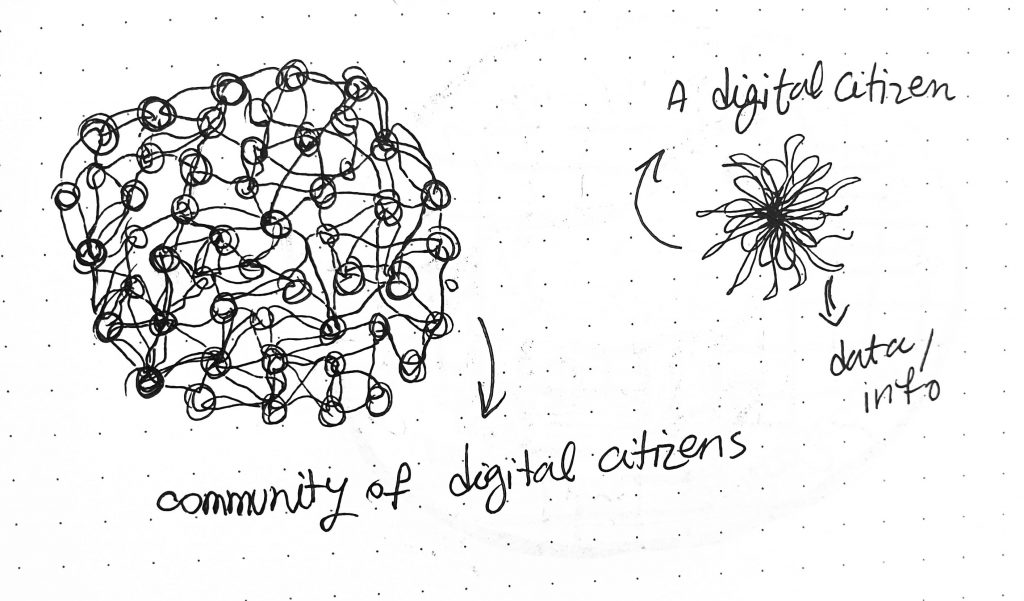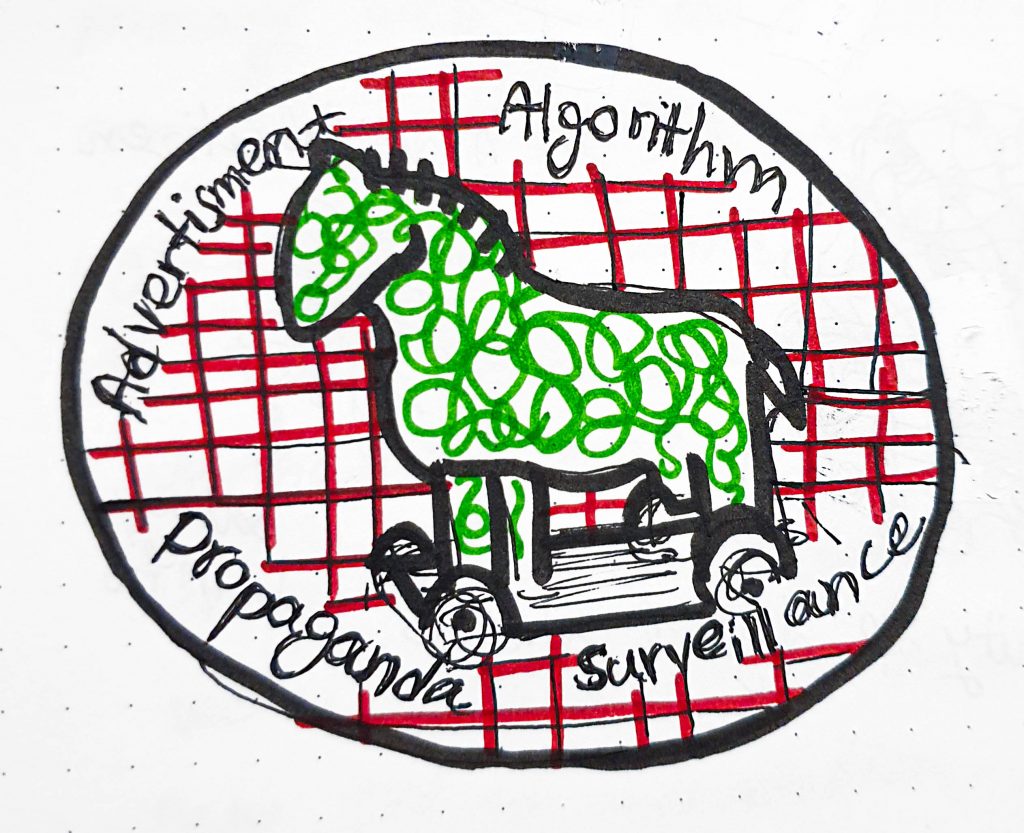When we sit in front of our screens, we seem to be alone. I, with my physical ability, am interacting through a device, a technology. I can read comments, see notifications, like posts, share pictures, or use these tools to contact the people I know in the physical world. All of these seem like a one-person job. The only thing that reaches me is data. This data can be colorful, have sound or motion, but I don’t get to see or feel the real person behind it.
Nonetheless, I can’t stop thinking about the feelings I’ve felt during these digital encounters. I have cried, I have typed angry replies with sweaty palms, and I’ve also felt joy and bliss, all on the same digital platform. These emotions indicate that in the end, I’m not alone in this. I never was. Someone else is always on the other end. I tap on my screen, and another screen light up.

We are borderless and a binary community. Binary in terms of data storage and technology, not of essence. This digital pluniverse includes numerous cosmologies. Culture, language, and politics can create distinct bubbles, but we’re not physically bound to them. During the past few years, a new kind of culture has emerged with new sets of norms and rituals. The Smiley 🙂 Emoji can be used as a genuine indication of happiness or as a passive-aggressive reaction. Meme culture is growing so fast. Hashtags become so popular that sometimes they enter the verbal language, offline.
People are producing all of this info rapidly. The human factor is inevitable. That’s what silicon valley knows and has been taking advantage of it. While we have the platform with the potential to do so much good, tech companies thrive on targeted advertisings and propaganda, manipulating users with directed algorithms and creating bubbles of information. To get away from all of these, should we retreat and delete all of our social media accounts? Can’t we instead take back the power from tech giants and disrupt their exploitation of user data?

This community is so powerful. It has the power to connect people from all over the world and show them different realities. I suppose it is possible to try and use this platform to create something unconventional from what the system is pushing. The question is, how can we use the digital platform to grow and empower communities beyond borders and beyond colonial impositions?
2 replies on “The Trojan Horse of social media”
– It would be interesting to explore how one can democratize data.
– Could data taxed?
– Data ownership – who owns this data?
– But what if we don’t have a smartphone, like my friend he just doesn’t use a smartphone. Its mind-boggling.
These are all very intriguing ideas! Thanks Charles. Thinking about democratizing data is very interesting to me because data and its distribution are without doubt political. And regarding your last comment, it is very important to not overlook the fact that not everyone has access to this platform. Is that a matter of access or a choice? Perhaps some can choose not to engage in this platform at all. Maybe because nowadays the negative aspects are more noticeable?
But there’s also the matter of privilege, some can’t afford to be on this platform. Looking back at “democratizing data”, maybe it should be a basic right for everyone to be able to reach this source. Especially witnessing our current way of living, the Internet has become an essential tool for online education or work, and I know people who are struggling so much with this, especially in poor regions. For them, not having a smartphone means being deprived of education or more, which is a basic human need.